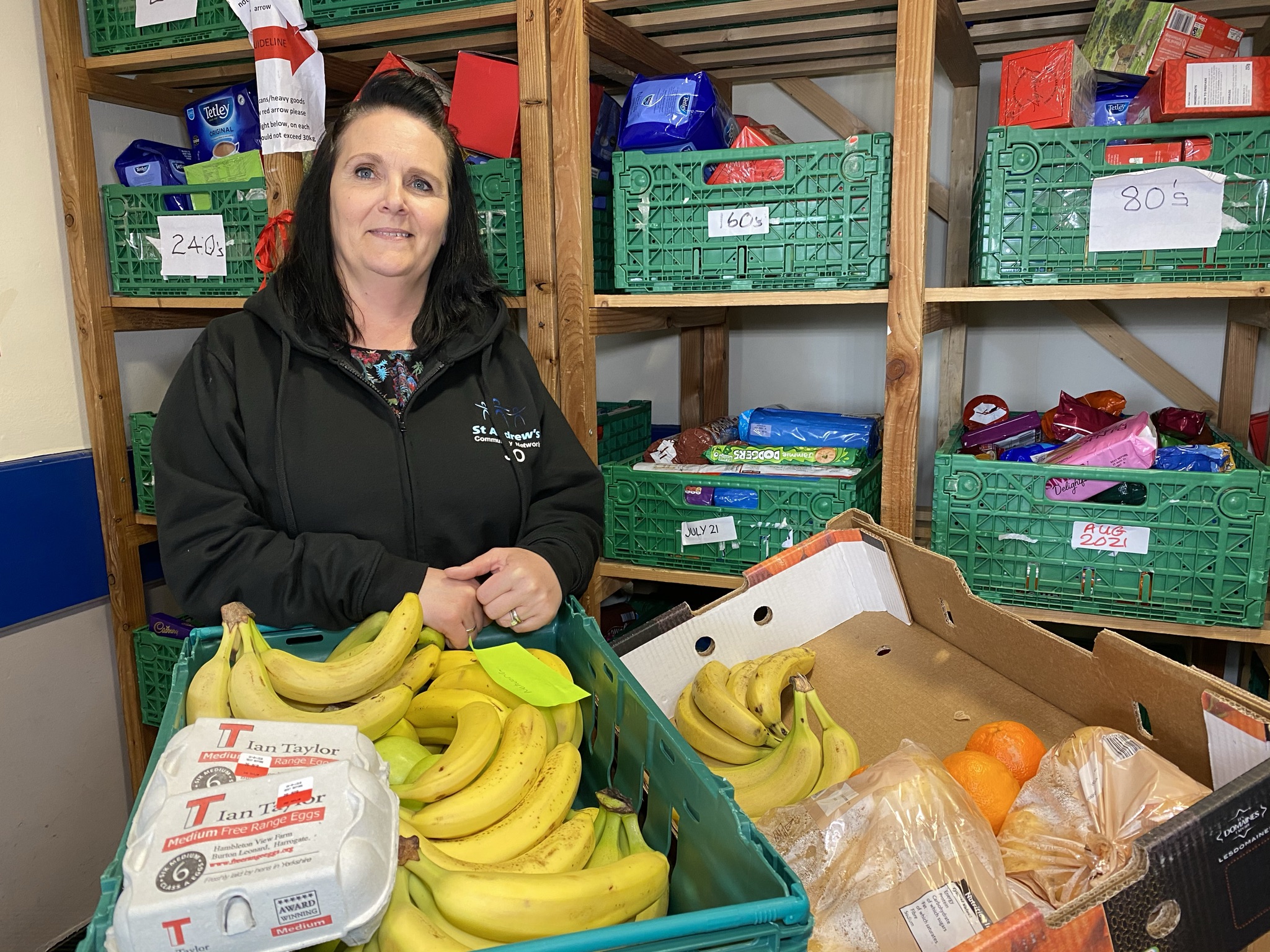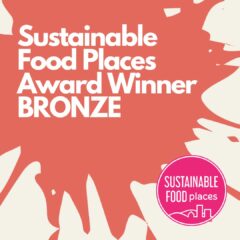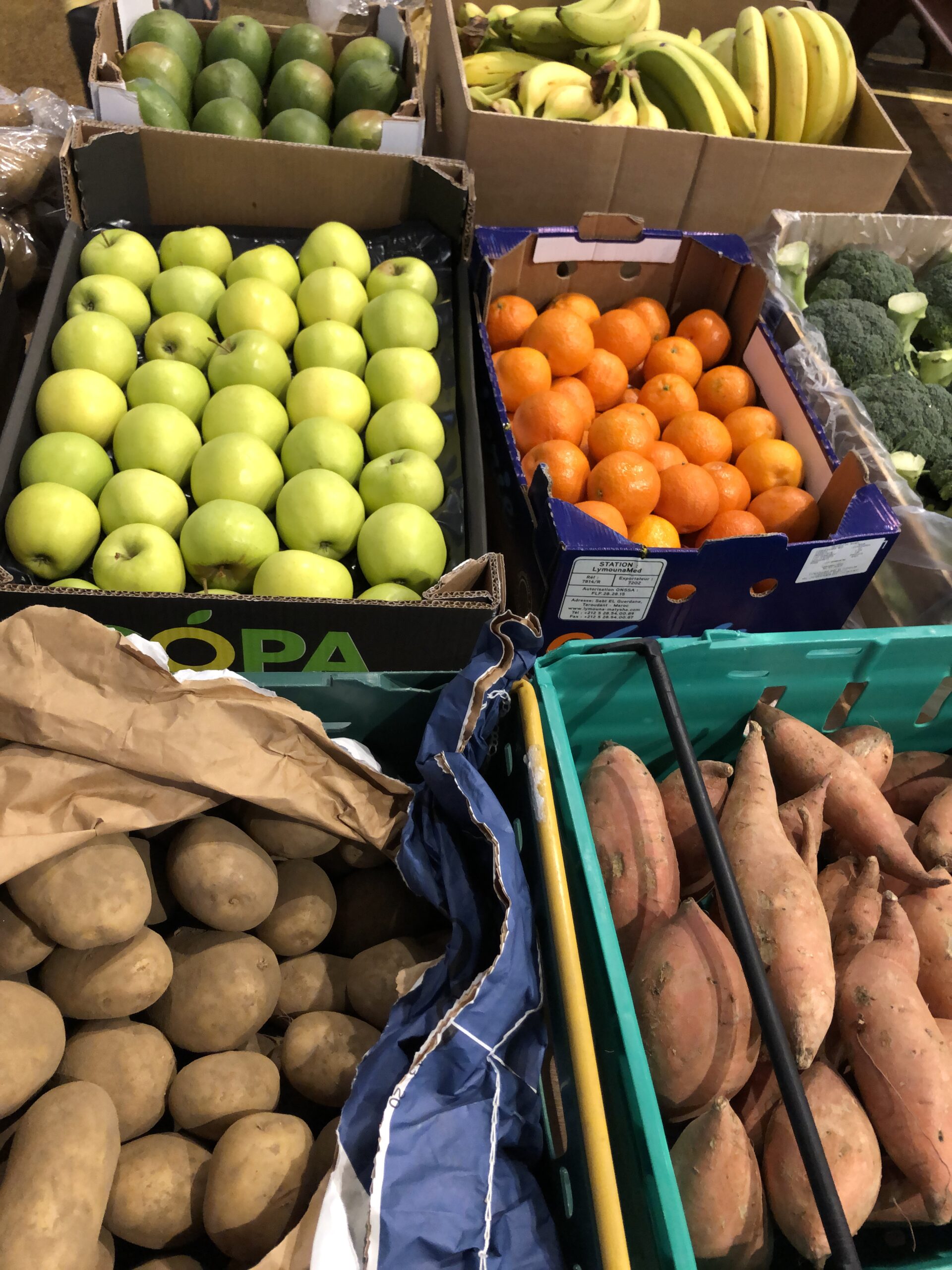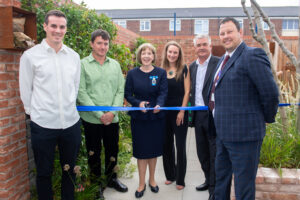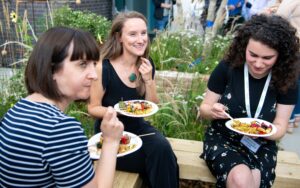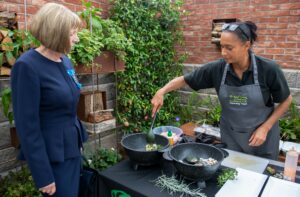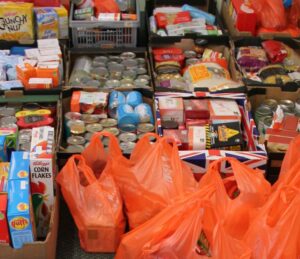This Christmas, we are asking residents and businesses to join together to support Feeding Liverpool’s Christmas Appeal to aid the work of Feeding Liverpool and our 70 member charities that provide emergency and community food support in the region as we work towards #GoodFoodForAll.
Over 132,000 people in Merseyside are having to access emergency food to feed themselves and their family – if they were to all hold hands, the line would stretch from Liverpool all the way to Birmingham.
We are asking those who are out celebrating Christmas with work colleagues and friends in bars or restaurants to give whatever they can afford via our Just Giving page to help us continue our work this winter and beyond.
Food poverty is not just a challenge for the most deprived households: with increasing taxes, rents, mortgages, food prices and energy, many households previously regarded as “comfortably off” are finding themselves needing the support of food banks and similar community projects. It is estimated that as many as 3,000 National Health Workers will be amongst those hoping for support to feed their families.
Feeding Liverpool Director, Naomi Maynard, said:
Food charities in the region are at crisis point; they are experiencing unparalleled levels of need – over 2,100 emergency food parcels in Liverpool are being distributed every week to people in need – at a time when food supply is dwindling. The most effective way to provide the ongoing support needed is through a financial donation. We urge the people of Liverpool out in local bars and restaurants celebrating Christmas to think about the 132,000 in their community who are struggling to put food on the table, let alone celebrate Christmas.
This is a huge number of people in our community who need support; 132,000 individuals is equivalent to a line of people holding hands from Liverpool to Birmingham (roughly 100 miles). Your support this Christmas will enable us to continue ensuring those in our community who are in crisis can put good food on the table this winter and beyond.
In our region, we have some of the most deprived communities in England, but also some of the wealthiest. In truth, the Liverpool region has the widest gap between rich and poor of anywhere in England. It is certainly within the gift of the Liverpool community to start to address this challenge.
How you can support the appeal:
- Make a donation to our Christmas Appeal which will run the length of the Christmas and New Year party season. Individuals can donate through the Just Giving page. For organisations and businesses who would like to donate, you can donate through our Just Giving page or alternatively contact our Office and Finance Administrator, Gentian Khan, on [email protected] for other ways to make a donation.
- Share our Christmas appeal with your friends, colleagues and networks by downloading this poster and display it at your place of work or share your support through use our social media assets (download this individual social media asset or this business / organisation social media asset)
- Fundraise for our Christmas Appeal through a targeted fundraising event during your organization’s Christmas celebrations, such as a raffle or promises auction during a Christmas Party
- Add a donation onto a specific product you sell, if applicable, following Hawksmoor Liverpool who are donating 50p to Feeding Liverpool from every sale of mince pies during the festive season.
Feeding Liverpool’s mission has already garnered the support of local businesses that share its goal of tackling food poverty. Matalan, leading fashion and homeware omni-channel value retailer, based in the North West, is rallying it’s colleagues to dig deep and donate what they can to support the charity and their local community. Matalan will match all donations made by colleagues whilst also donating all proceeds from its annual Christmas raffle to the cause.
Local restaurant, Hawksmoor Liverpool will once again support Feeding Liverpool through their mince pie fundraiser giving 50p to the charity for every mince pie sold in the restaurant, building on their successful partnership throughout 2023.
Matalan CEO Jo Whitfield said:
Food is such a big part of Christmas, but the reality is that many families will struggle to put food on the table this year due to the rising cost of living challenges. As a business that has called Liverpool its home for more than 30 years, we are proud to be supporting Feeding Liverpool to help more families have access to good food and the joy that brings.
Thanks to generous Matalan colleagues across the UK who are supporting the cause, and with all proceeds from our annual festive raffle being donated, we are able to support 2000 families this Christmas. At Matalan, we live by our values, and ‘think family’ couldn’t be more fitting right now. I ask those that can, to donate – however big or small. It will make a huge difference to struggling families this Christmas.
Hawksmoor Business Development Manager, Emma Hocknell said:
We have been supporting Feeding Liverpool since Hawksmoor Liverpool’s opening in November 2022. Our customers and staff often enquire about the charities that we support and how they can get involved. Making an affordable donation to Feeding Liverpool over the Christmas and New Year party season is a great way to support those who are most challenged by the cost of living crisis.
We hope that all Bars and Restaurants in Merseyside follow suit so those that are most able to help can make a big difference to our wider community.
Click here to make a donation to Feeding Liverpool’s Christmas Appeal


